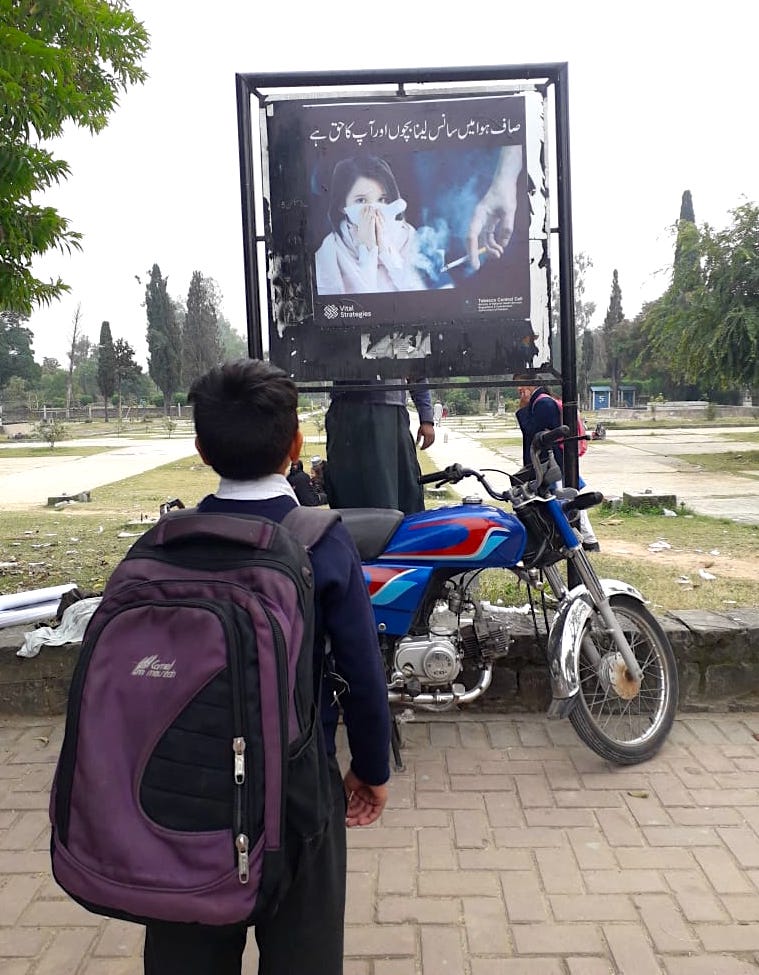By Ziauddin Islam, Communication Officer, Policy, Advocacy and Communication, Pakistan
COVID-19 was confirmed to have reached Pakistan on Feb. 26, 2020 when the Ministry of Health reported two cases, a student in Karachi who had just returned from Iran and another person living in the Islamabad metro area. Although this raised concern among the general public, the seriousness of the disease was not recognized until the government started to lock down the country on April 9, 2020. But without quarantine measures at international airports and overland border crossings, the caseload began to spike.
COVID-19 also brought misconceptions, myths and conspiracies to Pakistan, a country with a population of 220 million. It was challenging to convince the public of the seriousness of the disease and the need to curtail cultural festivities, religious activities and community gatherings, especially in semi-urban and rural parts of the country.
By June, Pakistan was among the top 20 countries with the highest caseloads of COVID-19. On June 22, 2020, WHO reported more than 8.7 million confirmed cases in 188 countries and territories, with a death toll of 461,715. That day, Pakistan totaled 179,592 confirmed infections with a death toll of 3,557.
The government was hindered by a scarcity of resources and scrambled to bolster its public health system to address the crisis. Meanwhile, rumors ran wild and confusion was palpable. For example, some religious leaders believed Pakistan’s mostly Muslim population was immune to COVID-19 due to their faith.
Vital Strategies partnered with the government of Pakistan to create an awareness campaign, called FACT (Fighting to Alleviate Corona Together), to disseminate critical information about how to reduce the transmission of COVID-19. The campaign emphasized the importance of the 3Ws (encouraging people to wash their hands, watch their distance, and wear a face mask) developed by Resolve to Save Lives, an initiative of Vital Strategies. The campaign was promoted through print, radio, national and subnational television channels and on social media.
The campaign also sought to overcome misconceptions and propaganda using carefully placed messages on conventional broadcast outlets and social media with a reach of over 90 million. By the end of July, Pakistan’s COVID-19 curve began to dramatically flatten, reflecting the effectiveness of the overall messaging and compliance by the public.)
Community Signage Campaign
One common misconception at that time was that smoking tobacco could prevent infection, despite evidence which has shown that smoking makes COVID-19 symptoms more severe. To combat this, Vital Strategies worked with Pakistan’s Ministry of Health to create and erect signage in the capital, Islamabad, to raise awareness about the health risks of smoking and second-hand smoke during the pandemic. Tobacco control messages were posted in high traffic areas such as city parks, markets and near schools, with an estimated reach of nearly 500,000 people daily.
The FACT campaign ran through July, beginning when COVID-19 was at its peak in Pakistan and ending as the curve flattened. The campaign appears to have encouraged the public’s understanding of the importance of compliance with the 3Ws message to help to reduce caseloads in the country. Dr. Zafar Mirza, former Special Assistant to the Prime Minister, agreed. He cited the major factors for the decline in COVID-19 were public behavior changes in tandem with early, effective government interventions, such as 2,300 targeted lockdowns involving more than 47 million Pakistanis. In September, Dr. Tedros Adhanom Ghebreyesus, World Health Organization Director-General, described Pakistan as one of seven countries the rest of the world could learn lessons from in their COVID response.
